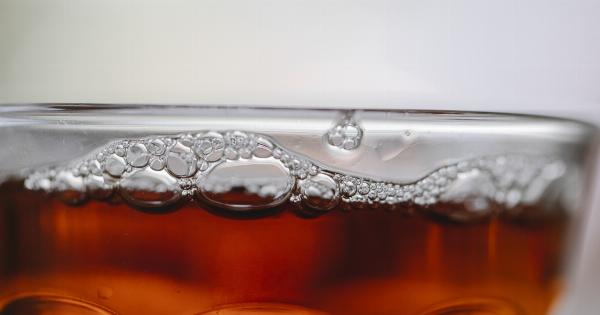Alcohol consumption has been a widely debated topic when it comes to its health effects.
While excessive drinking can have detrimental consequences, moderate consumption has been linked to various health benefits, such as reducing the risk of heart disease. One of the latest studies explores moderate alcohol consumption’s impact on dementia, which is a prevalent problem in aging populations worldwide.
Understanding Dementia and Its Causes
Dementia is a major public health problem worldwide, with a prevalence of around 50 million people as per the World Health Organization (WHO).
It is a term used to define a range of neurological disorders that affect cognitive and psychological functions. Common symptoms include memory loss, difficulty in communication, confusion, and decreased judgement. Dementia is primarily caused by neurodegenerative disorders such as Alzheimer’s, Parkinson’s and Huntington’s diseases.
There is currently no cure for dementia, and its treatments are limited to symptom management only.
What is Moderate Alcohol Consumption?
Before delving into the association between moderate alcohol consumption and dementia, let’s clarify the meaning of moderate alcohol consumption.
Guidelines from the US National Institute on Alcohol Abuse and Alcoholism (NIAAA) defines moderate alcohol consumption as up to one drink per day for women and up to two drinks per day for men. One drink is equivalent to a 12-ounce beer, 1.5-ounce shot of liquor, or a 5-ounce glass of wine.
The Study on Moderate Alcohol Consumption and Dementia
In 2020, a study published in the Journal of Alzheimer’s Disease seeks to explore the relationship between moderate alcohol consumption and dementia.
The study followed 2,621 people aged 65 and older with normal cognitive function at the beginning of the research. The participants were categorized into four groups based on their alcohol intake: never drinkers, former drinkers, low to moderate drinkers (one to eight drinks a week), and moderate to high drinkers (nine or more drinks a week).
The study found that moderate alcohol consumption is linked with a lower risk of dementia compared to non-drinkers and heavy drinkers.
The participants who had one to eight drinks per week had a 37% lower risk of developing dementia compared to those who never drank alcohol. In contrast, the heavy drinkers who consumed nine or more drinks per week had a 34% higher risk of developing dementia.
The Mechanism Behind the Association
The exact mechanism of how moderate alcohol consumption can protect against dementia is not yet clear.
However, some theories suggest that moderate alcohol intake can reduce inflammation, promote heart health, and improve cognitive function by increasing blood flow to the brain. Alcohol may also improve the microstructural integrity of the brain in moderate drinkers, which may lead to better cognitive performance at older ages.
The Potential Risks
It’s important to note that while moderate alcohol consumption may have some potential benefits, it’s not entirely risk-free.
Heavy drinking can increase the risk of dementia, and even moderate consumption can have negative impacts on certain individuals. For example, people with a history of alcohol abuse or addiction, liver disease, or other medical conditions may be advised to avoid alcohol altogether.
Moreover, people who are on certain medications, such as antidepressants or sedatives, should avoid alcohol since it can interfere with the medication’s effectiveness and may lead to serious health implications.
The Bottom Line
While there’s no cure for dementia, studies like this offer insights on how we can potentially reduce the risk of developing such a disorder.
However, it’s vital to note that moderate alcohol consumption will not guarantee protection against dementia, and it’s one factor among many that may impact a person’s cognitive health. The best approach is to adopt a healthy lifestyle that includes a balanced diet, regular exercise, and reducing overall alcohol intake.




























